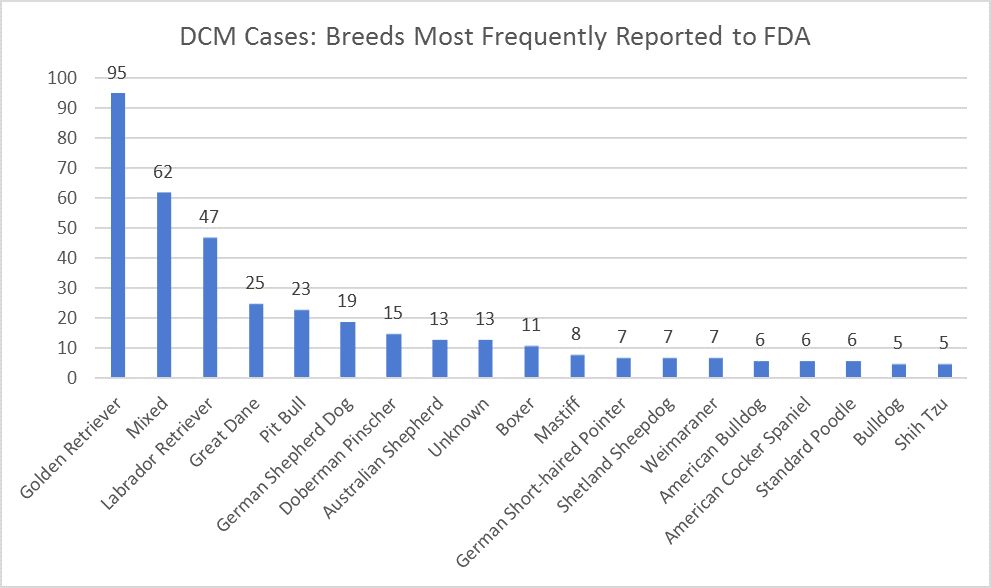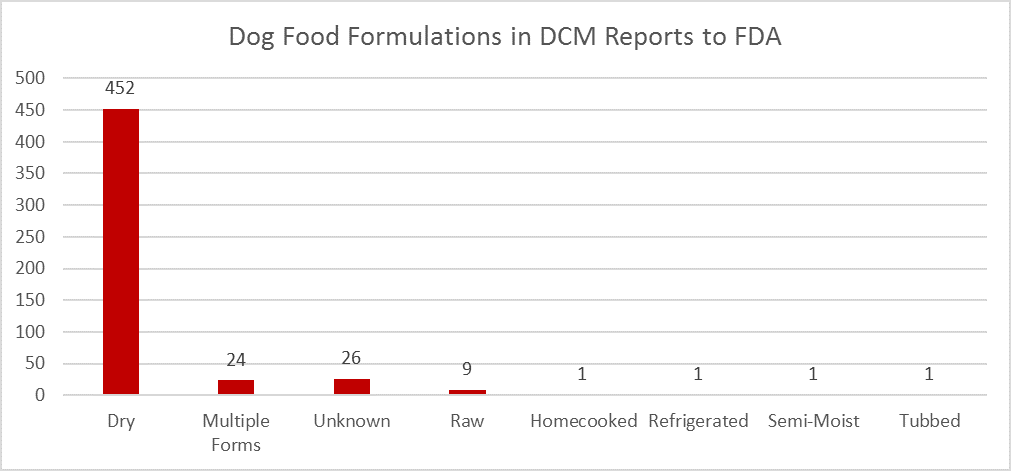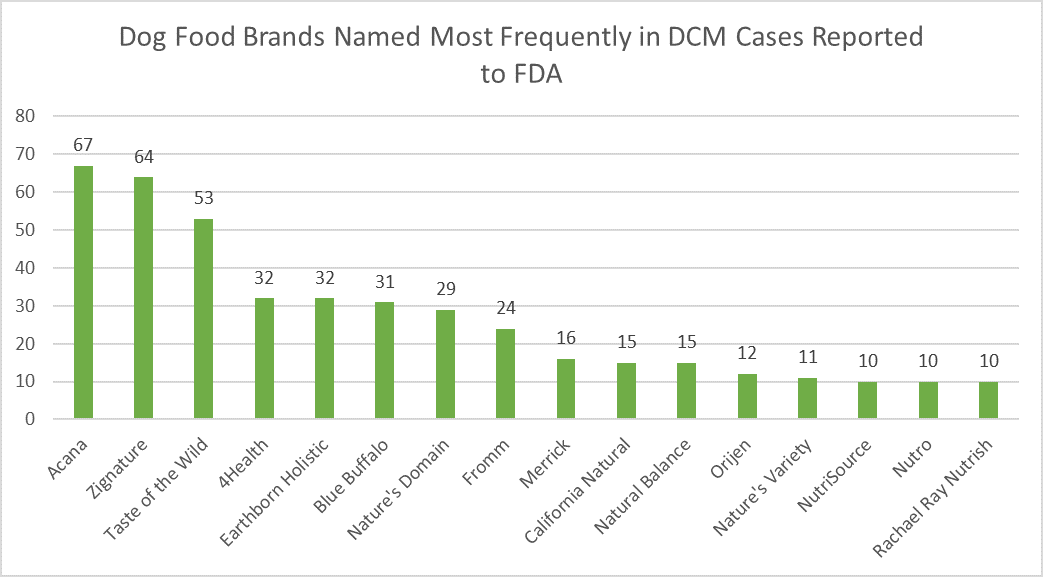Have you heard about the increase in dilated cardiomyopathy (DCM) in otherwise healthy dogs?
The Food and Drug Administration (FDA) defines DCM as the following:
DCM is a disease of a dog’s heart muscle and results in an enlarged heart. As the heart and its chambers become dilated, it becomes harder for the heart to pump, and heart valves may leak, which can lead to a buildup of fluids in the chest and abdomen (congestive heart failure). If caught early, heart function may improve in cases that are not linked to genetics with appropriate veterinary treatment and dietary modification.
Diet-related DCM is still an evolving issue, but in part has been found to be connected with specific commercial diets. Specifically, diets with “unique proteins” along with legumes like lentils or peas, have been connected with diet-related DCM.
Our dogs do not need specialty boutique diets – they need common animal protein sources like turkey, chicken, beef and eggs, along with vegetables and some other foods.
I conducted a workshop on this issue, and below are some notes.
Any breed can be affected, but golden retrievers have been hit hard by diet-related DCM, says the Golden Retriever Club of America.
See the following charts, courtesy of FDA.gov.
Dilated Cardiomyopathy – Golden Retrievers Greatly Affected
As you will see in this chart, golden retrievers represent the largest portion of DCM cases:

Dry Food or Kibble Most Likely to Cause DCM
As you will see from this chart. kibble is most connected with DCM cases:

Brands Implicated in DCM So Far
Here is what they’re saying so far, regarding brands. This is an evolving situation so more brands and formulations may have been connected:

Bottom line: Getting your dog on to a diet of classic proteins (turkey, beef, eggs, chicken, etc) and other healthy ingredients can help him or her stay healthy. Contact me for help.
Below are my notes from the workshop I conducted on dilated cardiomyopathy.
Diet-Related Dilated Cardiomyopathy in Dogs
Originally published October 2018
Dilated Cardiomyopathy in Dogs – The Diet Connection
—
Unfortunately, companion animals and their human caretakers are experiencing yet another round of fallout from commercial pet food. This time, it’s hundreds of cases of a heart condition called dilated cardiomyopathy (DCM). What could possibly be in pet food this time that is causing such broken hearts?
According to the reports, it’s use of “unconventional foods” or “boutique foods.” In this case, what that means is pet foods containing legumes, legume seeds, uncommon protein sources, limited ingredients, and grain-free formulations. The reported cases found dogs experiencing diet-related DCM are deficient in taurine.
There is much to be said about this topic of diet-related dilated cardiomyopathy. So let’s cover some bases. Contact me for help.
What is Taurine?
Taurine is a type of amino acid, a substance that helps produce, convert and metabolize proteins. Taurine can be synthesized and converted from other amino acids. This is usually no problem for a healthy animal, as long as the diet contains the right protein-rich animal products, and the rest of the diet is suitable.
However, taurine is best constructed and absorbed from animal proteins, not plant proteins. Some of the unconventional dog food diets implicated in the DCM cases use proteins from plant sources like legumes.
The Grain Factor
These DCM cases have also been associated with “grain-free” foods. This matter deserves some further clarification, too.
It is not a grain-free diet on its own that is causing taurine deficiency. We can say this with relative confidence because we know that taurine is best absorbed from animal proteins. Some grains can be a healthy addition to your dog’s diet, but unlike meat, grains are not mandatory for dog health. Grains do contain some important amino acids (although not like meat), as well as B vitamins and fiber if using the whole grain.
The grain free craze is just one of the latest trends in pet food, and the reality is that grains are not necessarily a problem – it’s the type and quality that matters. If your dog is consuming low-quality grains from commercial pet food, it could be they’re moldy, buggy or laden with pesticides or other certain toxins – and that’s why your dog is having a negative reaction to them.
Exotic or unconventional foods are often fed as an attempt to address allergies, when in reality many pets don’t actually have allergies but sensitivities, or they are simply reacting to a low-quality ingredient. This can be remedied by feeding better quality foods. This means human-grade.
Legumes and Nutrients
Legumes are healthy in some ways, but should not be the main protein source for dogs, as is the case in some of the unconventional dog foods.
Lentils, chickpeas, kidney beans and other legumes can actually prevent absorption of certain nutrients. In fact, their reputation for binding nutrients is so well-known, legumes are often referred to as having “anti-nutrients” because they get in the way of other nutrients.
To compound the issue, legumes are deficient in one of the amino acids that helps create taurine in the body.
While we may not know if legumes prevent taurine absorption, we do know they can bind certain nutrients, making these nutrients unavailable to the body. This is certainly not beneficial, especially for a dog whose body is already compromised or on its way to becoming compromised from a less-than-ideal diet.
Homocysteine
Homocysteine is another substance that helps the body convert and metabolize proteins. But it needs to be kept in check, and if it’s not metabolized properly, it can accumulate in the body. If this happens, it can be associated with heart disease. Further, too much homocysteine in the body interferes with production of many compounds–including taurine.
Homocysteine levels can become elevated for many reasons. When it comes to diet, these reasons can include inadequate intake of several B vitamins including B12. Vitamin B12 is found in animal foods. If we replace or minimize a dog’s meat intake with legumes or other plant based protein, we are compromising B12 intake.
Is my pet at risk?
What does your dog’s current diet look like? If s/he is on commercial food, it is vital to become a label reader. Unfortunately, even that doesn’t fully protect your pet. So what can you do to maximize his or her safety? The safest, most effective way is to serve better food.
So what should my dog eat?
The simplest answer to this is: serve a human-grade, meat-based diet. Taurine is easily received from meats like turkey and chicken, as well as eggs and many other animal proteins. Of course, dogs need more than just meat, and a healthy diet can include various items like vegetables, some fruits, healthy oils and yes, even some whole grains. Serve these along with other specific foods and you can better protect your pet.
But in order to ensure the safety and quality of these foods, they should come from your grocery store, not from pet food.
Conclusion
Sadly, this latest DCM problem is just one more example of how when we try to over-complicate, over-synthesize and compromise our pets’ food, we just get more problems.
Using plant based proteins, or low quality ingredients helps cut costs, but is not in the best interest of our pets.
It is time to shake our fear of changing diets, and get back to an ancient, proven diet of whole, real foods for pets. All it takes is a trip to the grocery store and a little guidance on putting things together.
Until then, we and our pets are sitting ducks when it comes to the next pet food fallout.
PS…Aside from the heart, adequate taurine not only protects the heart, but the eyes, insulin production and can even help in seizure management.
PPS … Cats need taurine too!

